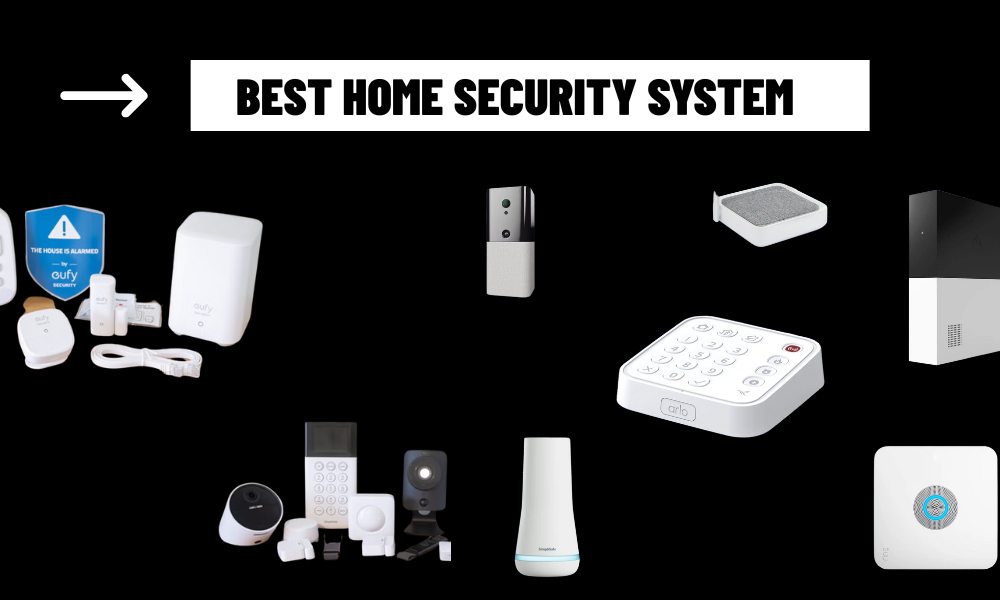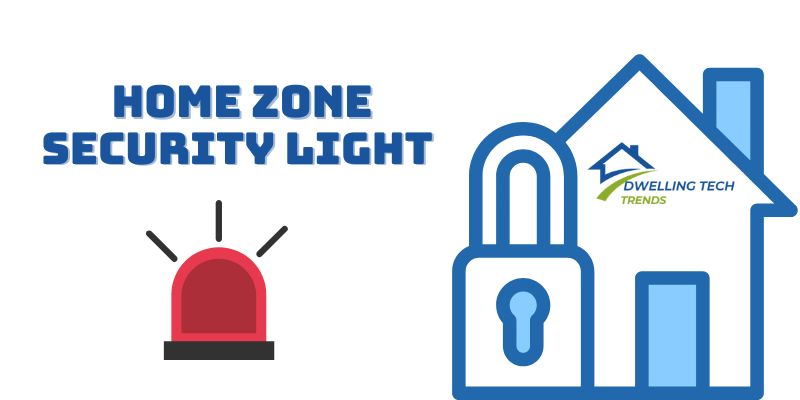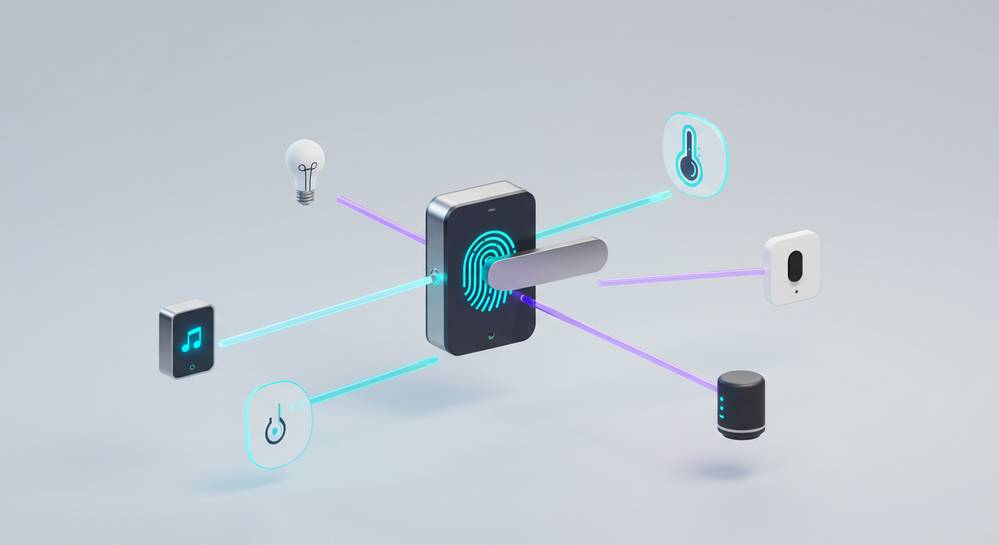When it comes to protecting your home, understanding home security prices per month is essential. Whether you’re considering a basic system or a more advanced setup, costs can vary based on the level of protection you need. In this article, we’ll break down what to expect, helping you make an informed decision about your home security budget.
Contents
Understanding Home Security Costs
Protecting your home and loved ones is paramount, and a robust home security system plays a crucial role in achieving peace of mind. However, navigating the world of home security can be overwhelming, especially when it comes to understanding the associated costs. This comprehensive guide will shed light on home security prices per month, helping you make informed decisions and find the best system for your needs and budget.
Why Home Security Matters: Peace of Mind and Potential Savings
Investing in home security goes beyond safeguarding your belongings; it’s an investment in your well-being and financial security. A reliable security system provides peace of mind by deterring potential intruders, protecting your family from harm, and ensuring the safety of your valuables. Moreover, having a home security system can lead to significant savings through potential insurance discounts, reduced risk of theft, and access to smart home integration that can lower energy costs.
Understanding home security pricing can feel like deciphering a complex code. However, this guide will demystify the process by breaking down the key components, outlining average costs, and highlighting factors that influence monthly fees. By the end, you’ll be empowered to compare different providers, understand the value of their offerings, and choose a system that aligns with your budget and security needs.
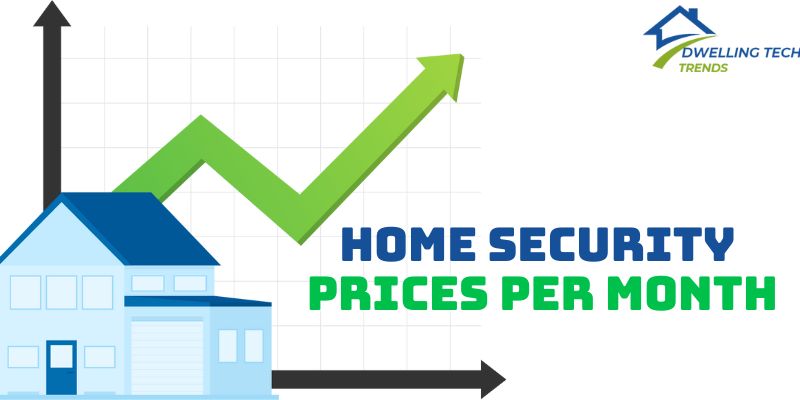
Breaking Down Home Security Prices Per Month
Average Cost of Home Security Systems
The average monthly cost for a home security system typically ranges from $30 to $60, but this can vary widely depending on your chosen provider, the size of your home, the complexity of your system, and the level of monitoring included. While some basic systems may offer low monthly fees, comprehensive packages with advanced features and professional monitoring services can incur higher costs.
Cost Breakdown: Equipment, Installation, and Monitoring
Home security prices are composed of three main components:
- Equipment: This includes the core elements of your system, such as control panels, motion sensors, door and window contacts, cameras, and other security gadgets.
- Installation: Professional installation costs vary depending on the complexity of your system, the number of devices installed, and the labor rates in your region. For DIY systems, installation costs may be lower, but professional installation ensures proper setup and optimal performance.
- Monitoring: Professional monitoring services are crucial for providing 24/7 surveillance and immediate response in case of an emergency. Monitoring plans typically include a monthly fee, which covers round-the-clock support and swift dispatch of emergency services when necessary.
Factors Influencing Your Monthly Costs
Several factors influence your monthly home security costs:
- System Type: Basic security systems with limited features generally cost less than sophisticated smart home security systems with advanced capabilities like home automation and remote accessibility.
- Monitoring Plans: The level of monitoring you choose significantly impacts your monthly costs. Basic monitoring plans provide essential alerts, while advanced plans include features like mobile app integration, video recording, and 24/7 professional support.
- Professional Installation: While DIY installation can save on upfront costs, professional installation ensures proper setup, optimal performance, and compliance with local regulations.
- Number of Devices: The more security devices you include in your system, the higher the initial equipment costs.
- Location: Labor rates and other regional factors can influence installation costs.
Exploring Popular Home Security Providers and Plans
ADT Home Security: Prices and Packages
ADT is a renowned name in the home security industry, offering a wide range of customized packages to fit different needs and budgets. Their prices can vary depending on the specific features and monitoring services included. ADT’s packages often include professional installation, 24/7 monitoring, and advanced features such as home automation integration.
Vivint: Cost vs. Features
Vivint is another prominent player in the home security market, known for its cutting-edge technology and comprehensive smart home integration. Their systems often include a range of sensors, cameras, and automation features, providing a robust security solution. Vivint’s pricing can be more on the premium end due to its advanced features and reliable monitoring services.
Budget-Friendly Options: SimpliSafe and Ring Alarm
For budget-conscious homeowners seeking reliable security without breaking the bank, SimpliSafe and Ring Alarm offer excellent alternatives. These companies provide DIY-friendly systems that can be installed without professional assistance, reducing upfront costs. They also offer flexible monitoring plans to suit different budgets, making them attractive options for cost-sensitive consumers.
Maximizing Value: Savings and Benefits
Potential Insurance Discounts
One of the significant advantages of having a home security system is the potential for insurance discounts. Many insurance companies offer reduced premiums to homeowners who install and maintain a security system, as it demonstrates a commitment to home safety and reduces the risk of theft or burglaries.
Deterring Crime and Protecting Your Assets
A well-designed home security system acts as a powerful deterrent, discouraging potential intruders from targeting your home. The presence of visible security cameras, motion sensors, and alarm systems sends a clear message that your property is protected, making it a less attractive target for criminals.
Smart Home Integration and Added Convenience
Modern home security systems often integrate seamlessly with smart home devices and platforms, offering enhanced convenience and functionality. With smart home integration, you can control your security system, lights, appliances, and other connected devices remotely using a smartphone or tablet. This added convenience simplifies home management and adds an extra layer of security.
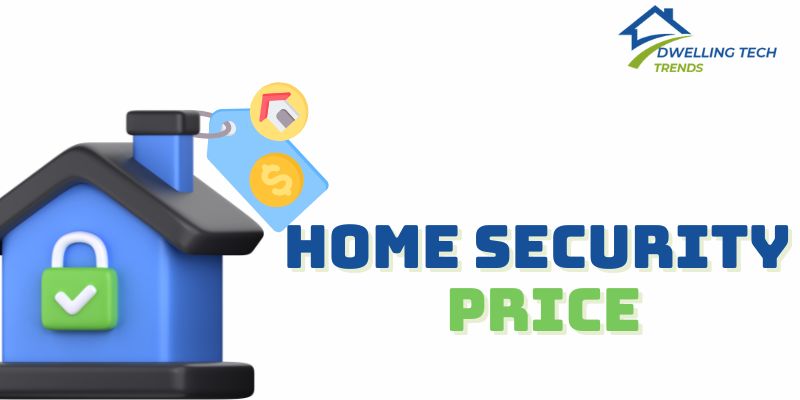
Making Informed Decisions About Home Security
Key Takeaways: Finding the Right System for Your Needs
Choosing the right home security system requires careful consideration of your needs, budget, and lifestyle.
- Establish your security priorities and determine the level of protection you require.
- Research different providers, comparing their features, costs, and monitoring plans.
- Explore DIY options for potential cost savings, but weigh the benefits of professional installation.
- Factor in the potential for insurance discounts and the added convenience of smart home integration.
- Don’t hesitate to ask for multiple quotes and compare offerings before making a decision.
Next Steps: Comparing Quotes and Choosing a Provider
Once you have a clear understanding of your needs and budget, it’s time to start comparing quotes from different providers. Consider requesting quotes from several reputable companies, ensuring that you compare similar features and monitoring plans.
- Analyze the equipment included, installation costs, and monthly fees.
- Factor in the provider’s reputation, customer service ratings, and technical support offerings.
- Consider the ease of use and user-friendliness of the system.
- Choose a provider that offers a system that aligns with your needs and budget.
Additional Resources for Home Security Information
- National Crime Prevention Council: This organization provides valuable resources and information on home security, including crime prevention tips and safety guidelines.
- Consumer Reports: This independent consumer organization offers reviews and ratings of home security systems, helping you make informed choices.
- The National Burglar and Fire Alarm Association (NBFAA): This industry association provides information on security standards, certification requirements, and professional installation guidelines.
By taking the time to understand home security prices per month and exploring different options, you can make an informed decision that provides peace of mind and protects your home and belongings. Remember, investing in home security is an investment in your safety and well-being.
Get the latest tech tips by following Dwelling Tech Trends!
